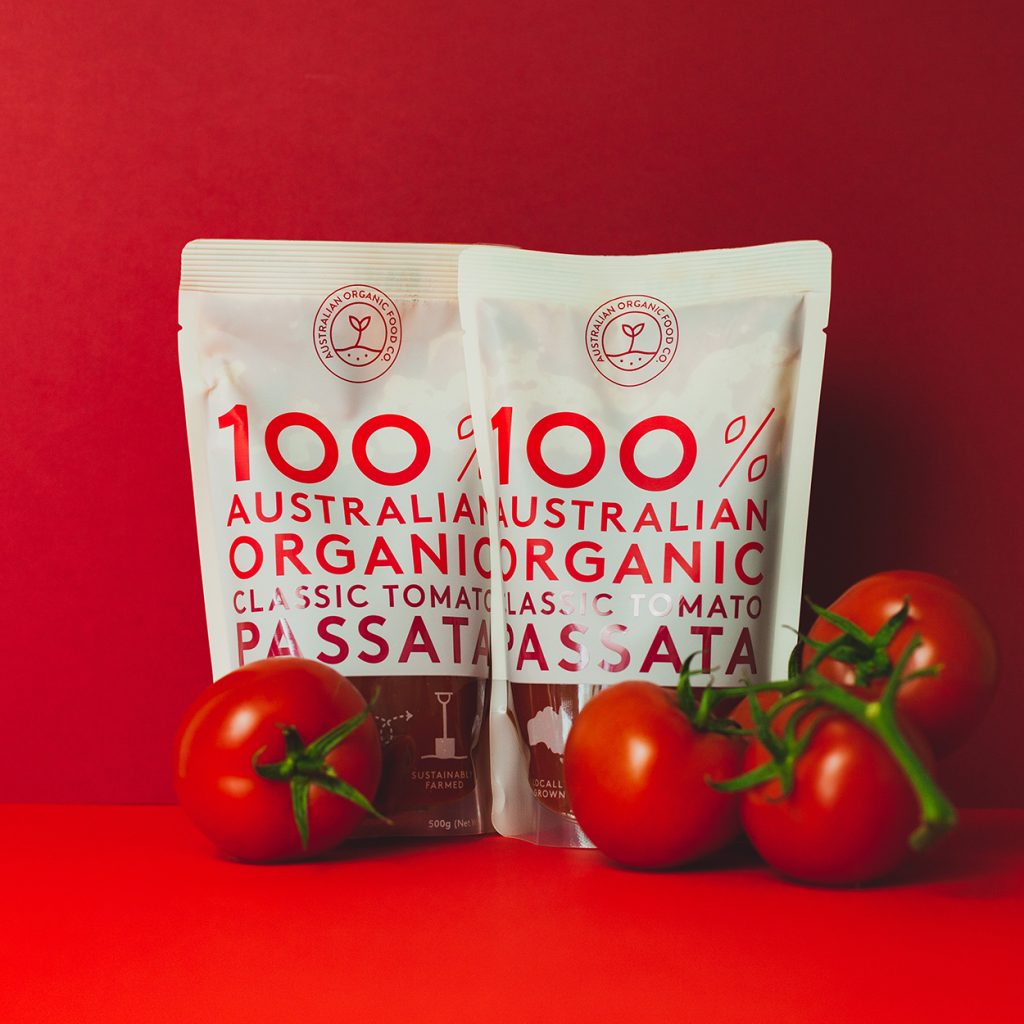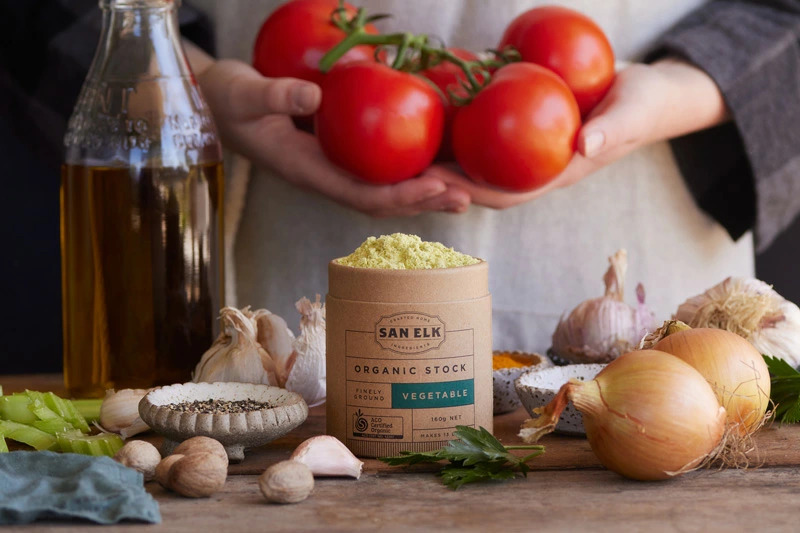Australian Organic Food Co. shares their top five organic gardening tips! Read more to find out how to take your organic garden to the next level. Australian Organic Food Co. shares their top five organic gardening tips! Read more to find out how to take your organic garden to the next level.
Sustainable living isn’t a race, it’s a marathon, and we have to take it step-by-step. When the founder of Australian Organic Food Company, Adrian Cester, first learned about the impact industrial and chemical-heavy farming was having on soil health, he knew he had to do something.
The solution presented itself when he found out how much food waste was caused by superficial produce requirements: partner with Australian organic farmers to rescue doomed produce and improve soil health for future generations.
With that, Australian Organic Food Co. was born, and with it a whole range of products made from only 100% organically-grown Australian produce.
Our Tomato Passata uses 100% Australian grown organic tomatoes, so you can trust that it’s good for your family and our planet — it’s also perfect for pasta, stews and more! Our Tomato Passata joins our range of ready-to-eat 100% Australian organic soups and fruit purees — healthy snacks for kids big and small — all available now at Woolworths!
We recently launched a selection of tasty organic juices and we’re excited to announce they will soon be joined by a range of new delicious 100% Australian organic pasta sauces — look out for them at your local independent supermarket!
Our 5 Organic Gardening Tips
We recently discovered our customers aren’t just passionate about buying organic, they’re also passionate about growing organic too. With a heap of insights learned from some of the best in the business — our incredible Aussie organic farmers — we could hardly keep our organic growing tips to ourselves. Here are some of our top tips for taking organic gardening to the next level!
- Set your soil up for success. Start your garden by finding out the composition of your soil with a few simple tests. For a more in-depth test on minerals and nutrients, you can find soil testing kits online
- Set up a good composting system. A general garden compost will do, and will give your plants continual nutrients if dug into the center of your garden. Adding a Bokashi Bin to the mix will mean you don’t have to send non-compostable scraps to landfill. This includes meats, fats, bread, excessive citrus and onion. To be a true composting champion, start a worm farm! Although a little pickier than your average compost bin, worms create a constant flow of amazing fertiliser, and they are able to break down food scraps much faster. A combination of all 3 methods will ensure you never need to send food scraps to landfill again.
- Set up an irrigation system to save time on watering. Keep in mind that some plants prefer to be watered from above and some not so much. Pumpkin, zucchini, cucumber, peas, roses, grapes, pawpaws, strawberries and apples are susceptible to powdery mildew, a white mould that can kill off leaves. Keeping the foliage dry will stop mildew form overtaking, therefore these plants are better off watered from the base.
- Use your old eggshells as seed starters. Simply fill the empty eggshell with soil and plant your seed. Once the plant has sprouted, put the whole thing, egg and all, into the soil.
- Download ‘Picture This’, an app that helps with plant identification. Composting often leads to lots of surprise seedlings! Rather than pulling them out immediately, try to identify them in case they’re edible.
We’ve recently launched a new Facebook community group that’s all about organic gardening. If you have a passion for sprouting, or want to know how best to use your empty egg shells, join our ‘Organic Gardening Tips & Tricks’ group. Share your questions and experiences, and hopefully we’ll all learn a thing or two from each other along the way!






